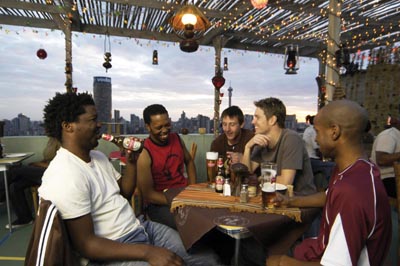Heineken severs ties with South African Breweries
No more Amstel for SAB. After 40 years, Heineken decided to terminate its contract with South African Breweries (SAB) on 12 March 2007 with immediate effect.
SAB, which only found out about Heineken’s decision from the media, subsequently released a statement saying that it has stopped brewing the beer also with immediate effect.
Why have things come to a head between Heineken and SABMiller’s South African division, SAB? Well, following SABMiller’s USD 7.8 billion acquisition of Latin American brewer Bavaria in 2005, for which Heineken had also put in an offer, the Dutch brewer initiated arbitration proceedings against SABMiller. Heineken argued that the 15 percent stake that the controlling shareholders of Bavaria obtained in SABMiller constituted a material change in ownership of SABMiller, which could reasonably be considered to be harmful to the interests of the Heineken group. According to reports in the media, Heineken believed that SAB’s profits were being used to fund SABMiller’s global expansion and that Heineken’s objective was to restrict SABMiller’s South African domestic and international success.
Whatever you and me think of that claim, the arbitration court recently decided in Heineken’s favour and allowed it to invoke a term of the agreement entitling it to terminate the Amstel Trade Mark Licence Agreement.
It may have been a bit of tit for tat on Heineken’s part – like “if I cannot have Bavaria you shall not have my Amstel”. But obviously, there were more pressing financial considerations which made Heineken seek a legal way out of the 40 year old licensing agreement with SABMiller. Currently, Amstel accounts for 9 percent or 2.3 million hl of the South African beer market. This, combined with the 2 percent that the Heineken brand has, gives the Heineken group an 11 percent share of the beer market. In money terms the Amstel brand contributed approximately USD 300 million to SAB’s revenues for the year ending 31 March 2007, or some USD 80 million of EBITA. Hardly peanuts.
Heineken’s move will result in SAB losing control of the most popular premium beer brand in the country. It accounts for about 70 percent of SAB’s premium beer offering, which at an annual growth of 22.5 percent is the fastest growing market segment. In comparison, SAB’s core products, which account for 85 percent of total sales, only grew 1 percent last year.
SAB now finds itself in a spot of bother: how to cope with the sudden loss of 10 percent of volume without having to lay people off? All of SAB’s breweries were involved in the production of Amstel. Also, how long will it take SABMiller’s own international brands like Miller Genuine Draft, Peroni and Pilsner Urquell to grow in popularity equal to Amstel’s?
Heineken said that Amstel Lager would be marketed, sold and distributed in South Africa through Brandhouse Beverages, which is a joint-venture between Heineken, Diageo and Namibia Breweries. Heineken also announced that it has taken an in-principle decision to construct a brewery in South Africa, which could be up and running in two years’ time. Until the new brewery has been completed, Amstel will be sourced from existing Amstel breweries in Namibia, Nigeria and Europe.
What makes Heineken’s move particularly troublesome for SABMiller is that it will be the first time that a competitor with a significant share of the local beer market has challenged SAB’s monopolist position. In the past, SAB has always managed to beat its upstart challengers. Even Namibia Breweries’ Windhoek label, despite being backed by such heavyweights such as Heineken and Diageo, has only had a moderate success in the premium beer segment and still battles to break into the mass market. Which is why one should not place too many hopes on the analysts’ latest fantasy. Some analysts have been speculating that Anheuser-Busch might team up with Heineken before the 2010 soccer World Cup in South Africa for the production of Budweiser and that this partnership could change the face of the South African beer market. There are so many “ifs” involved in that fantasy to become reality that it is hard to believe that it could be crowned with success.

